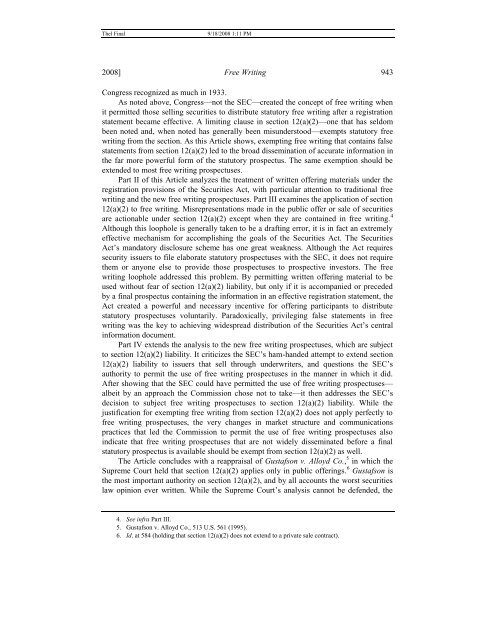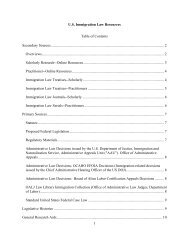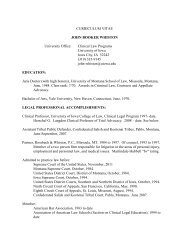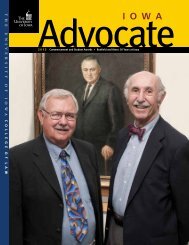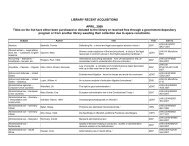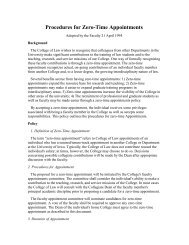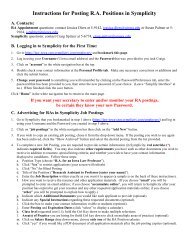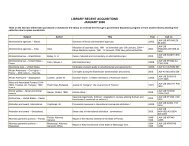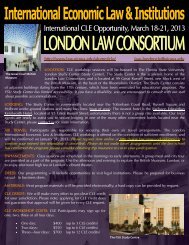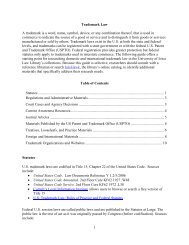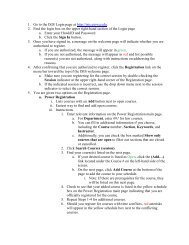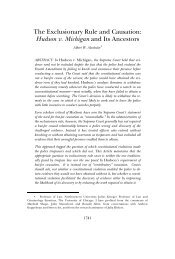Free Writing Steve Thel*
Free Writing Steve Thel*
Free Writing Steve Thel*
- No tags were found...
Create successful ePaper yourself
Turn your PDF publications into a flip-book with our unique Google optimized e-Paper software.
Thel Final9/18/2008 1:11 PM2008] <strong>Free</strong> <strong>Writing</strong> 943Congress recognized as much in 1933.As noted above, Congress—not the SEC—created the concept of free writing whenit permitted those selling securities to distribute statutory free writing after a registrationstatement became effective. A limiting clause in section 12(a)(2)—one that has seldombeen noted and, when noted has generally been misunderstood—exempts statutory freewriting from the section. As this Article shows, exempting free writing that contains falsestatements from section 12(a)(2) led to the broad dissemination of accurate information inthe far more powerful form of the statutory prospectus. The same exemption should beextended to most free writing prospectuses.Part II of this Article analyzes the treatment of written offering materials under theregistration provisions of the Securities Act, with particular attention to traditional freewriting and the new free writing prospectuses. Part III examines the application of section12(a)(2) to free writing. Misrepresentations made in the public offer or sale of securitiesare actionable under section 12(a)(2) except when they are contained in free writing. 4Although this loophole is generally taken to be a drafting error, it is in fact an extremelyeffective mechanism for accomplishing the goals of the Securities Act. The SecuritiesAct‟s mandatory disclosure scheme has one great weakness. Although the Act requiressecurity issuers to file elaborate statutory prospectuses with the SEC, it does not requirethem or anyone else to provide those prospectuses to prospective investors. The freewriting loophole addressed this problem. By permitting written offering material to beused without fear of section 12(a)(2) liability, but only if it is accompanied or precededby a final prospectus containing the information in an effective registration statement, theAct created a powerful and necessary incentive for offering participants to distributestatutory prospectuses voluntarily. Paradoxically, privileging false statements in freewriting was the key to achieving widespread distribution of the Securities Act‟s centralinformation document.Part IV extends the analysis to the new free writing prospectuses, which are subjectto section 12(a)(2) liability. It criticizes the SEC‟s ham-handed attempt to extend section12(a)(2) liability to issuers that sell through underwriters, and questions the SEC‟sauthority to permit the use of free writing prospectuses in the manner in which it did.After showing that the SEC could have permitted the use of free writing prospectuses—albeit by an approach the Commission chose not to take—it then addresses the SEC‟sdecision to subject free writing prospectuses to section 12(a)(2) liability. While thejustification for exempting free writing from section 12(a)(2) does not apply perfectly tofree writing prospectuses, the very changes in market structure and communicationspractices that led the Commission to permit the use of free writing prospectuses alsoindicate that free writing prospectuses that are not widely disseminated before a finalstatutory prospectus is available should be exempt from section 12(a)(2) as well.The Article concludes with a reappraisal of Gustafson v. Alloyd Co., 5 in which theSupreme Court held that section 12(a)(2) applies only in public offerings. 6 Gustafson isthe most important authority on section 12(a)(2), and by all accounts the worst securitieslaw opinion ever written. While the Supreme Court‟s analysis cannot be defended, the4. See infra Part III.5. Gustafson v. Alloyd Co., 513 U.S. 561 (1995).6. Id. at 584 (holding that section 12(a)(2) does not extend to a private sale contract).


